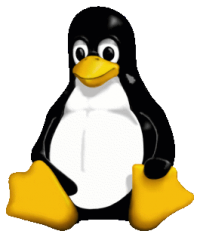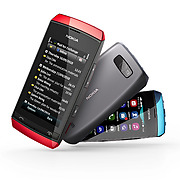Larry the BSD Guy
Parsing the developments from the BSD side of things this week for consumption by the general public is a little trickier than it is across the street on the Linux side, however with a little juggling (and an important note from iXsystems to come tomorrow in the weekly FOSS roundup), we’ll take a look at the new images ready for your testing and feedback. Also, I’ll answer some questions which arose in last week’s comments.
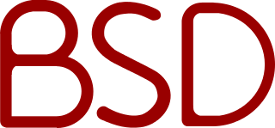 Before I do that, though, it bears noting that Susan Linton over at Ostatic.com has picked up the BSD ball and run with it in a recent item on that site. Of special note is this morsel: “PC-BSD is the Linux Mint of free BSDs, an easy-to-use desktop system.” Why it wasn’t referred to as the “vowel-laden-and-overbearing-Linux-distro of free BSD” is a mystery, but I’ll take Linux Mint any day. Also, extra points to Susan for putting the “f” in lower case in “free BSD” to emphasize “BSD which is free” as opposed to FreeBSD, which would have caused some confusion.
Before I do that, though, it bears noting that Susan Linton over at Ostatic.com has picked up the BSD ball and run with it in a recent item on that site. Of special note is this morsel: “PC-BSD is the Linux Mint of free BSDs, an easy-to-use desktop system.” Why it wasn’t referred to as the “vowel-laden-and-overbearing-Linux-distro of free BSD” is a mystery, but I’ll take Linux Mint any day. Also, extra points to Susan for putting the “f” in lower case in “free BSD” to emphasize “BSD which is free” as opposed to FreeBSD, which would have caused some confusion.


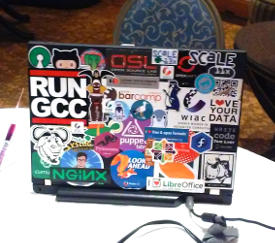
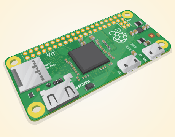 The Thanksgiving holiday really put a damper on FOSS developments this week — but that doesn’t mean there’s nothing to report. On the contrary. So without further adieu, and on the heels of Thanksgiving, help yourself to another slice of…
The Thanksgiving holiday really put a damper on FOSS developments this week — but that doesn’t mean there’s nothing to report. On the contrary. So without further adieu, and on the heels of Thanksgiving, help yourself to another slice of…
 Really, folks, I get it: Linus Torvalds is a great and historic man, one who changed the world for the better by developing a kernel that put a huge fast-forward on technology for all, on a far-more-level playing field than it could have been with the Linux kernel’s absence.
Really, folks, I get it: Linus Torvalds is a great and historic man, one who changed the world for the better by developing a kernel that put a huge fast-forward on technology for all, on a far-more-level playing field than it could have been with the Linux kernel’s absence. 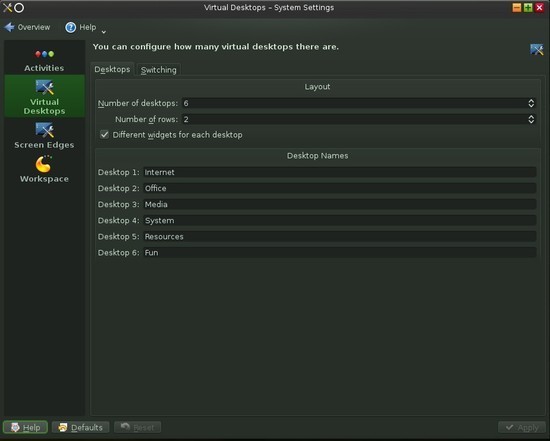

 MS Writes a Check: Well, this was probably inevitable. With a generous donation, Microsoft has become a gold contributor to the OpenBSD project — the first gold contributor — in an effort to get OpenBSD’s help in porting OpenSSH to Windows. This comes from a
MS Writes a Check: Well, this was probably inevitable. With a generous donation, Microsoft has become a gold contributor to the OpenBSD project — the first gold contributor — in an effort to get OpenBSD’s help in porting OpenSSH to Windows. This comes from a 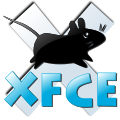
 Nothing could be further from the truth, and several in the discussions rose to Xfce’s defense on the absurdity.
Nothing could be further from the truth, and several in the discussions rose to Xfce’s defense on the absurdity.
 A biennial tradition in the San Francisco Bay Area, MeetBSD 2014 uses a mixed unConference format featuring both scheduled talks and community-driven events such as birds-of-a-feather meetings, lightning talks, and speed geeking sessions. MeetBSD can be traced back to a local workshop for BSD developers and users, hosted annually in Poland since 2004. Since then, MeetBSD’s popularity has spread, and it’s now widely recognized as its own conference with participants from all over the world.
A biennial tradition in the San Francisco Bay Area, MeetBSD 2014 uses a mixed unConference format featuring both scheduled talks and community-driven events such as birds-of-a-feather meetings, lightning talks, and speed geeking sessions. MeetBSD can be traced back to a local workshop for BSD developers and users, hosted annually in Poland since 2004. Since then, MeetBSD’s popularity has spread, and it’s now widely recognized as its own conference with participants from all over the world.